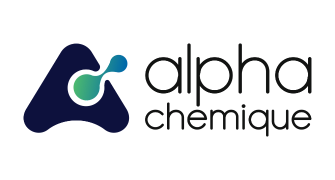Hydroxyethyl Cellulose Introduction:
Hydroxyethyl Cellulose (HEC) is a versatile chemical compound that finds applications in various industries. It is a non-ionic, water-soluble polymer derived from cellulose. Hydroxyethyl Cellulose (HEC) is valued for its thickening, stabilizing, and film-forming properties. In this article, we will explore the introduction, properties, benefits, uses, and significance of Hydroxyethyl Cellulose (HEC).
Properties:
Hydroxyethyl Cellulose (HEC) is characterized by several properties that contribute to its functional versatility. This powder appears as a white to off-white substance and is devoid of any odor. When dissolved in water, it forms clear and viscous solutions. One notable property of Hydroxyethyl Cellulose (HEC) is its remarkable thickening ability, which enables it to enhance the viscosity and consistency of diverse formulations. Additionally, HEC exhibits compatibility with a wide range of additives and ingredients commonly utilized in various industries. Its water solubility, clarity, and compatibility make Hydroxyethyl Cellulose (HEC) a valuable ingredient in numerous applications.
Benefits:
The use of Hydroxyethyl Cellulose (HEC) offers numerous benefits across different industries. Firstly, it acts as an effective thickener and stabilizer. Hydroxyethyl Cellulose (HEC) can improve the viscosity and flow properties of formulations, making it valuable in the production of paints, adhesives, and personal care products. It helps prevent settling, sagging, and dripping, ensuring better application and performance.
Moreover, Hydroxyethyl Cellulose (HEC) provides film-forming properties. It can create a protective film or coating on surfaces, enhancing durability and resistance to moisture. This makes it suitable for use in coatings, construction materials, and various industrial applications.
Uses:
- Personal Care and Cosmetics: Hydroxyethyl Cellulose (HEC) is extensively used in the personal care and cosmetics industry. It is a common ingredient in hair care products, such as shampoos, conditioners, and styling gels, where it provides thickening and conditioning benefits. Hydroxyethyl Cellulose (HEC) is also found in skincare products, including creams, lotions, and gels, as a viscosity modifier and emulsion stabilizer.
- Paints and Coatings: Hydroxyethyl Cellulose (HEC) finds extensive application in the manufacturing of paints, coatings, and adhesives. It serves as a valuable thickening agent, enhancing the rheological properties of these formulations and improving their application characteristics. By incorporating Hydroxyethyl Cellulose (HEC), the viscosity and consistency of paints and coatings are optimized, facilitating better control during application. Furthermore, HEC contributes to the stability and durability of the coatings, imparting resistance to water and chemicals. This ensures enhanced performance and longevity of the painted or coated surfaces.
- Construction Materials: Hydroxyethyl Cellulose (HEC) is employed in the construction industry as an additive in cement-based products, such as tile adhesives, grouts, and self-leveling compounds. It enhances the workability, consistency, and bonding properties of the materials, improving their performance and durability.
- Pharmaceuticals: Hydroxyethyl Cellulose (HEC) finds application in the pharmaceutical industry. It is used as a binder, stabilizer, and film-forming agent in tablet formulations. Hydroxyethyl Cellulose (HEC) helps improve the tablet’s integrity, disintegration, and dissolution properties.
Conclusion:
Hydroxyethyl Cellulose (HEC) is a valuable compound with a wide range of applications. Its properties as a thickener, stabilizer, and film-forming agent make it suitable for use in personal care, paints and coatings, construction materials, and pharmaceuticals. The benefits of using Hydroxyethyl Cellulose (HEC), such as improved viscosity, stability, and film-forming capabilities, contribute to its significance in various industries. Understanding the properties, benefits, and uses of Hydroxyethyl Cellulose (HEC) allows for its effective utilization in the formulation of high-quality products.

